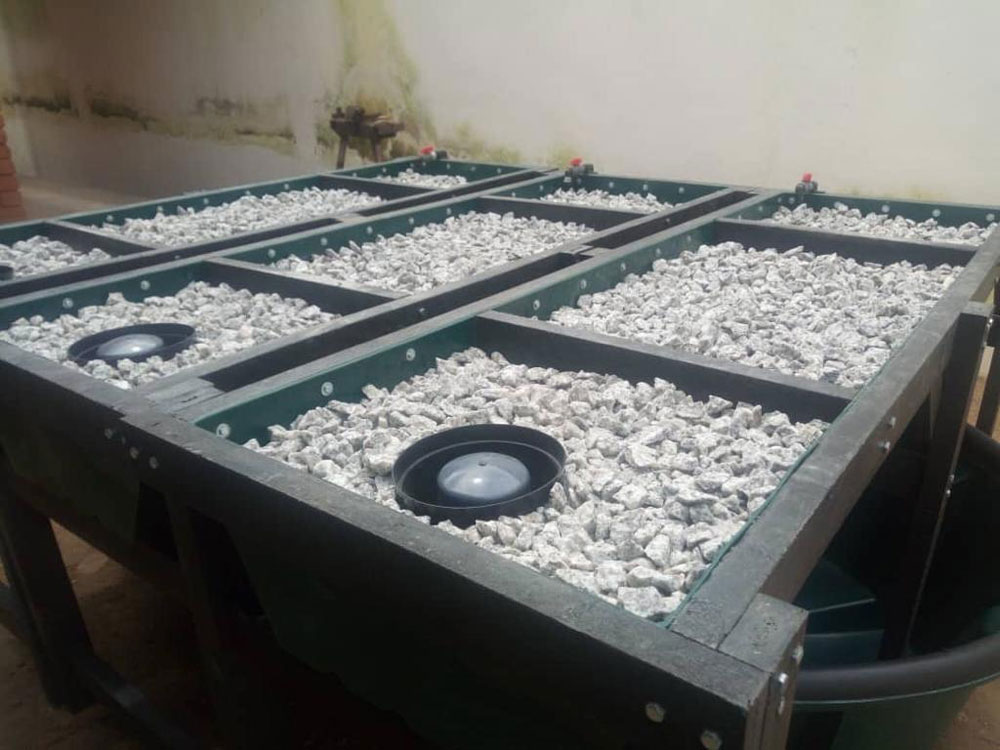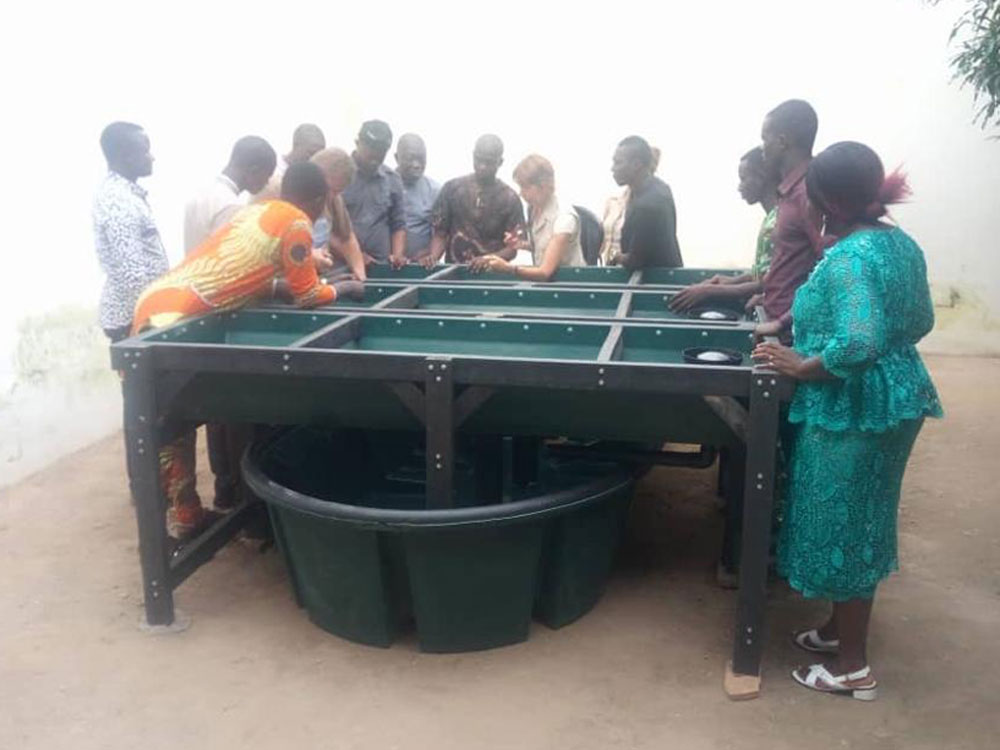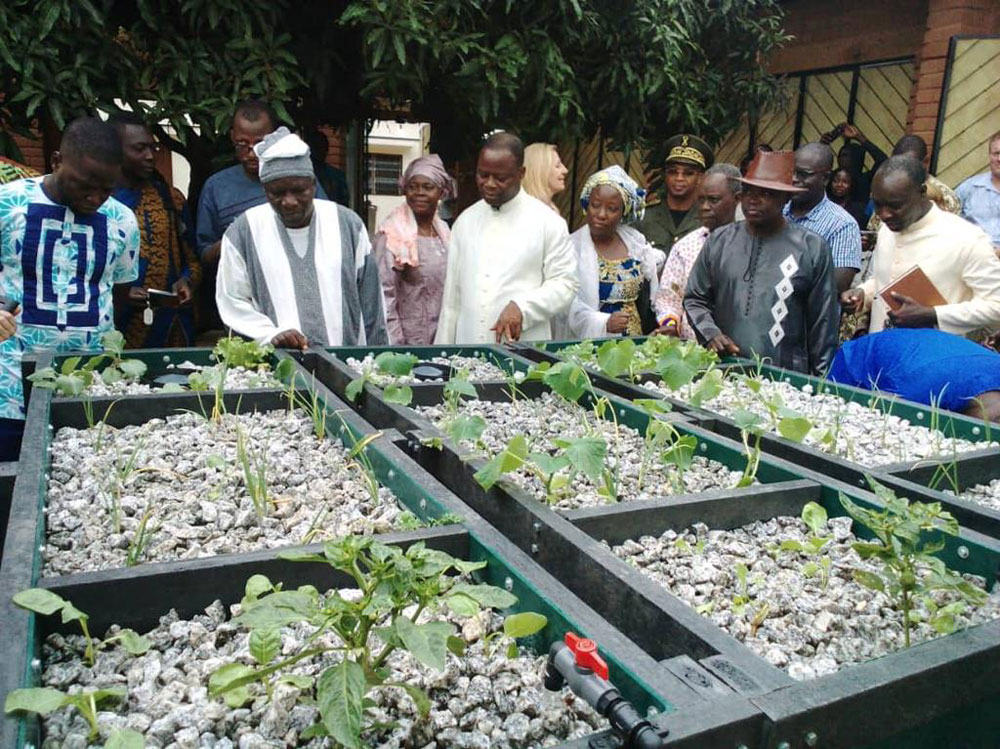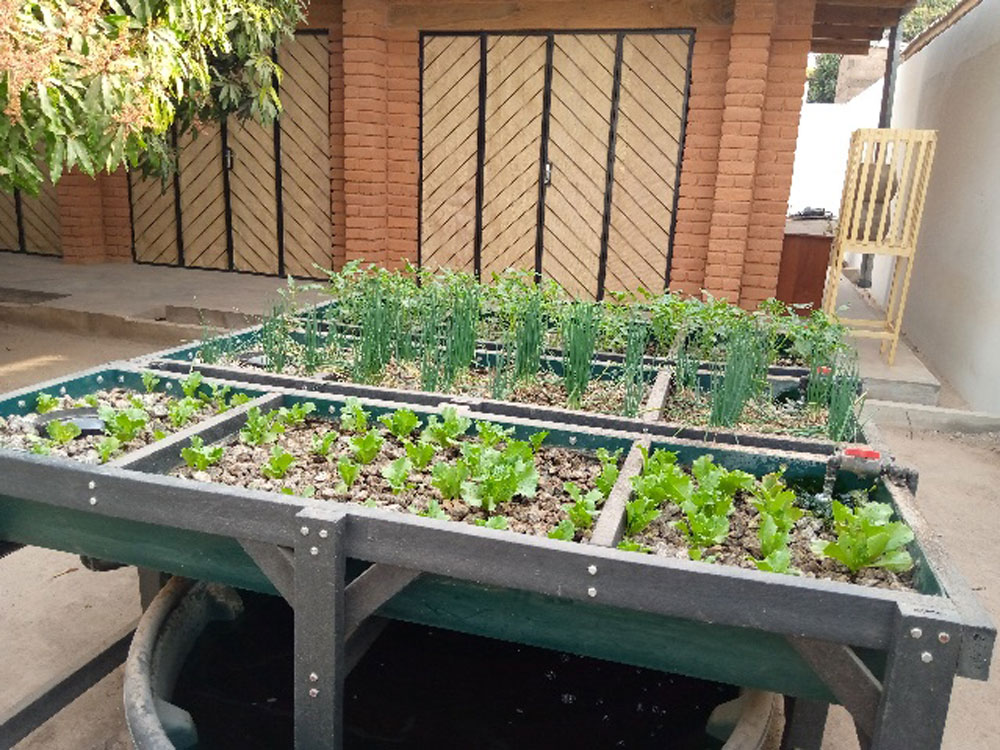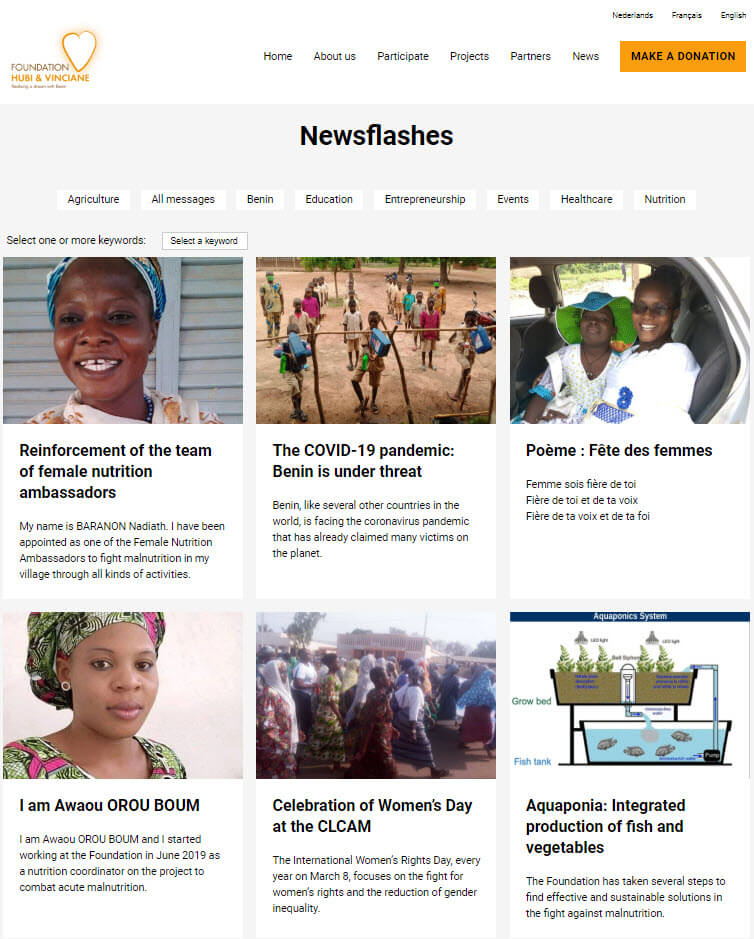Aquaponics: complete production of fish and vegetables
The Foundation has made several attempts to find an effective and sustainable solution to malnutrition. In the course of this research, an integrated vegetable and fish production system was found, which had previously been used in South Africa.
Aquaponics is a system that links the cultivation of plants with the farming of fish. The fish faeces are used as fertilizer for the plants, which in turn act as a biological filter. Nutrients needed for plant growth are released by bacterial transformation of the waste products of macro-organisms (fish) into elements that can be assimilated by plants.
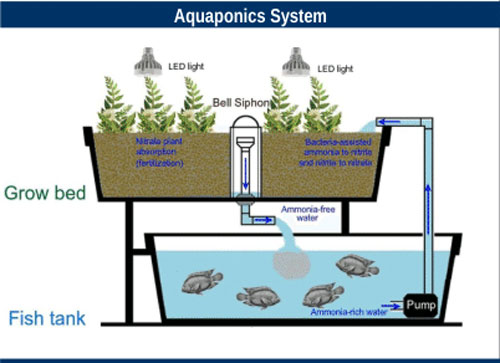
After successfully testing several vegetables, the next objective is the promotion of this integral and ecological small-scale system for the production of fish and vegetables.
Collaboration with Aquaponics
Five systems have been installed, one at the CIAP (Centre D’Innov’Action de Parakou), two at the University of Parakou and two at the Sokounon farm. The latter two are partners of the Foundation. The farm of Sokounon is committed to making the production known, while at the University of Parakou several studies are carried out (feasibility, financial…).
Training of ambassadors
During the period of installation of the aquaponics systems, theoretical and practical training sessions were attended by 17 ambassadors to ensure proper dissemination of information. They must be able to design, produce and monitor Aquaponics after the experts have left.
Results obtained with different vegetables
Several vegetables were tested in the aquaponic system to evaluate their usefulness under current climatic conditions. After three months, lettuce, amaranth, onion, African eggplant, parsley, celery and leek were found to give good results.
Fish
After a few months, the fish were ready to be eaten. Last month, 15 fish were harvested per system. These fish are fleshy and have a delicious taste.
A remarkable success that encourages us to continue the work.
